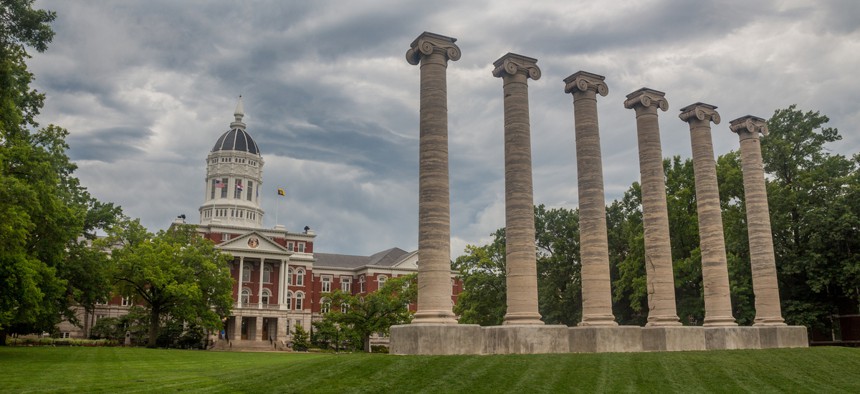The Old College Try: Getting Students Into Government

Shutterstock/Karel Triska

Connecting state and local government leaders
A new initiative will establish regional councils to create talent pipelines from universities to state, local and federal government agencies.
While college students are often idealistic and driven to get into public service when they graduate, they frequently don’t consider working for government agencies.
To help repair this disconnect, the Volcker Alliance is rolling out a new initiative that focuses in large part on the university to government pipeline. The aim is to make it easier for agencies at the federal, state and local levels to find fresh talent, while getting leaders from different branches of government together in different regions around the country to identify what they need locally.
A glance at the statistics shows the importance of such an effort, said Thomas W. Ross, president of the Volcker Alliance, a nonprofit organization that aims to improve government. While 25% of the private sector workforce is younger than 30, less than 7% of the federal workforce comes from that cohort. In state government, a recent report found that even though job postings grew 11% between 2013 and 2017 in 27 state agencies, 24% fewer people actually applied for the positions.
“Students, they have their impressions of government—we all do—but they don’t really know what a particular job is like and what you can accomplish,” said Ross.
Government agencies typically don’t do a good job of reaching out to college students, Ross said. “They can’t afford it, nor do they think of doing that kind of recruiting,” he said.
The Volcker Alliance tested the ideas behind its Government-to-University (G2U) Initiative last year, organizing sessions in four cities that gathered university officials and government representatives together, Ross said. Now, the group is funding two regional councils—in Austin and Kansas City—that will kick off the effort. The goal is to create as many as five councils through 2020.
Along with figuring out how to promote government to young people entering the workforce, Ross said the group’s initial work found a need to provide training for mid-career people already in government, helping them get the skills to continue progressing in their careers. For example, as agencies try to fill technology jobs, one strategy might be helping people already working for them get those in-demand skills.
In Kansas City, the group that will be spearheading the G2U council is the Mid-America Regional Council, which has begun pulling together people from higher education and all levels of government from nine counties in Kansas and Missouri.
Lauren Palmer, director of local government services for MARC, said her experience in talking to local government officials demonstrates how tough recruitment can be, particularly for students developing expertise in competitive fields like engineering or cybersecurity.
Students in public administration programs might already be connected to local government agencies, but a lot of work has to be done for government to match private sector recruitment in other key areas, Palmer said.
In Kansas City, one early priority will be creating an online job portal for government work across the region. Palmer said the goal would be to create a platform that would be easy for applicants to use and possibly could involve a uniform application process.
“Our dream and our vision is, if you have a candidate who wants to be a police officer, that candidate can go to single portal” to see jobs across the region, Palmer said.
Along with the platform, Kansas City’s project will focus on a talent-to-industry exchange that will figure out where the region’s labor gaps really are, as well as create a data academy to train government employees to use the information they are gathering all the time, but maybe not using.
Once regional councils like the one in Kansas City develop new initiatives, like a jobs platform, Ross said the goal is for the technology and ideas to be shared across an eventual network of other councils.
Laura Maggi is the Managing Editor of Route Fifty.

NEXT STORY: With Tough to Fill Jobs, Some States and Localities Turn to ‘Gig’ Workers





